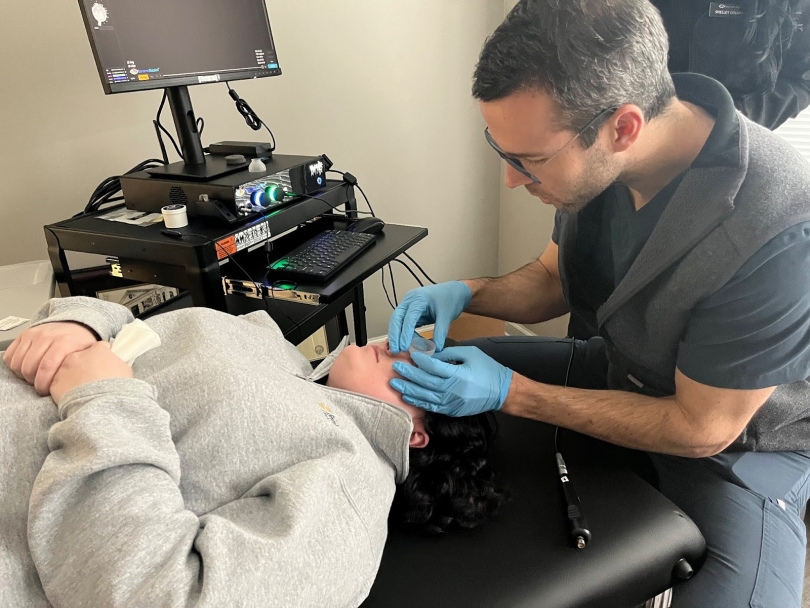
My Off-Term Clinical Internship
If you are interested in going to a professional health school—whether it be medical school, dental school, physician assistant school, among others—clinical hours are important because they give you insight into the field that you hope to go into and ensure that is the path you want to take before committing to years of graduate school. Clinical hours can look like a lot of different things, including shadowing a health provider, working as an EMT, working as a medical assistant, volunteering as an interpreter, and many other pathways.
Before this term, I had clinical hours from various experiences including shadowing doctors to working for Dartmouth EMS. I wanted to build on these experiences and work for a doctor near my hometown. My previous fall internship connected me to Dr. Jordan Stanley, who is the founder and ophthalmologist at PureSight Surgical in Marietta, GA. Working with PureSight Surgical has been one of my most impactful experiences during my college career. Shadowing, working with, and learning from Dr. Stanley has confirmed my dream to go to medical school. Dr. Stanley and I crafted the internship to be multifaceted—I work with him at PureSight Surgical, and I also shadow him at the Veterans Affairs Hospital that he helps at.
Dr. Stanley is on the cutting-edge of ophthalmologic technology as he one of the first ophthalmologists in Atlanta to use AI-generated technology to do eye ultrasounds. Seeing and working with this new technology made me wish I had taken ENGS 16: Biomedical Engineering for Global Health, a Dartmouth class focused on the intersection between technology and medicine.

I take the MCAT in late March, so this internship has helped me with the anatomy section in that I am seeing real images of eyes that the test covers!
The header picture was from a Career Day at a local elementary school that I had the pleasure of attending with Dr. Stanley! From my internship, I was able to articulate ophthalmologic concepts in a simple way to the students.
This internship was made possible by the Center for Professional Development (CPD) SELF Fund. The CPD recently received a $15 million grant from alumni to fund 300 additional internships every year. Dartmouth students who find low-paying or non-paid internships can apply for funding any off-term—Winter, Spring, Summer and Fall—and if they are selected, the CPD will provide up to $5,000 for living expenses during the off-term. This is very unique and hard to find at other schools, so I am so grateful for Dartmouth's funding resources!
Overall, this internship has been incredibly helpful in learning the intricacies in healthcare. For Dartmouth students, internship funding allows us to pursue internships regardless of whether they are paid. This can open the doors to many internships and opportunities, and I am so glad I had this experience

















